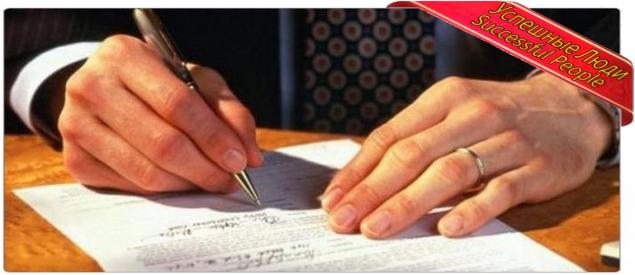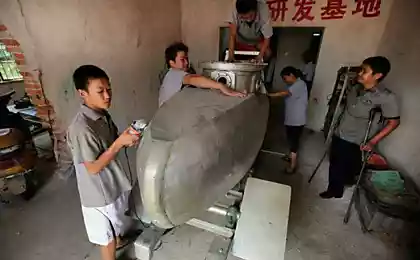1133
Businessman note!

There are recommendations developed by people for a long time collaborating with Chinese businessmen, the rules of how to do business in China to foreigners. These rules are taken from the book by Richard R. Gestelanda "Cross-cultural behavior in business." Below we present them in brief with the author's comments.
• If you will be a major contract with the Chinese side, the negotiating better exercise their interpreter than rely on the Chinese side.
• Chinese companies are reluctant to enter into business negotiations with strangers.
• First contact can be set at a trade show or official trade
mission, and through acquaintance with the help of a mediator.
• In China, the establishment of mutual understanding is an important part of the whole negotiation
process. Become better acquainted with their colleagues to business discussions. In China, first make friends and then make a deal.
• Young people with respect to the older, occupying a high position in
society. Therefore, young businessmen seeking to establish business contacts in
China should show respect to the people in the age, especially to buyers of goods.
• The Chinese believe that the open expression of anger or impatience is a manifestation of infantilism. They quickly lose respect for those people who can not keep calm under stress.
• Respect is associated with self-esteem, dignity and reputation. If you express strong opposition or have been critical of the presence of others, you can lose the respect of his business partners. If you use polite forms of address and comply with local customs and traditions, it promotes respect for you from the local partners. If you make a mistake, humbly apologize.
• The Chinese, especially in the north, reserved and formal. In discussing the major issues they rely more on personal meetings than written communication and telephone conversations. The Chinese often use indirect, subtle, ambiguous statements, evasive answers, so as not to offend the other side. For example, many Chinese believe that the answer to the request of the word "no" is offensive. Instead, they say: "This issue requires further study" or "It will be difficult».
• Laugh or giggle during a call from the Chinese associated with stress, nervousness or embarrassment, and not with joy. At the presentation did not start his speech with a joke or anecdote. Do not overpraise their products or company. Instead, use the product samples or an article about your company. Do not criticize your competitors.
• The Chinese may perceive a closer, direct gaze as an attempt to intimidate or even the sign of outright hostility. When meeting a handshake is enough light and moderate eye contact. Avoid strong handshake and open direct view. During business negotiations pending contact through touch, hugs, pats on the back, etc.
• The Chinese appreciate punctuality and commitment to schedules and schedule. They expect the same from foreign colleagues, especially from potential suppliers.
• Clothing and negotiations should be conservative: for men - classic suit, white shirt and tie, dress-up for women.
• When referring to someone using the name or company name. In naming the person name always comes first. For example, Li Peng Er, please contact Mr. Lee, Mr. Peng instead. Do not call the Chinese name, until they do not offer it to you.
• On business cards printed in Chinese, in the first place is the surname, then the two names. But on the cards printed in Western languages, the order of the names may be reversed. On one side of your business card text should be printed characters. Exchange business cards made with both hands and is accompanied by a slight bow of the head. When you hand over the card, read it, and then put in a leather case or on the table in front of him in front of the person who gave it to you.
• The exchange of gifts is an important part of Chinese business culture. A good gift would be expensive cognac. The best option may be souvenirs, typical for your country. Presented a gift with both hands. The recipient may have to postpone it and open up after the meeting. You also need to accept the gift with both hands and open it later. China has decided to give not one, but two gifts (unless, of course, this is not some rarity). That is, if the cognac - that two bottles, and so on. N. In Chinese shop gift products most often immediately packed in pairs.
• If you are taking the Chinese delegation at home, for banquets, you can choose a restaurant that is very well prepared national specialties.
• Note, however, that businessmen from China, visiting other countries, prefer Chinese food.
• The Chinese traded briskly and expect their partners will make concessions in the negotiation process. They can measure the success of the negotiating table so as far advanced as compared to the original proposal. Experienced business people always leave some margin to be able to concessions. Get ready for a brisk trade. Concessions go reluctantly, only subject to the equivalent concessions in return. At the critical moment of negotiations, you can see that in the lobby suddenly appeared competitor and forward to meeting with your Chinese partner after talks with you. Thus, you are pushing to the concessions that you do not want to go.
• If in the process of negotiating swap circumstances, China may wish to review the contract. For them, the contract - an expression of intent.
• The presence of lawyers at the negotiating table is regarded by the Chinese as a sign of mistrust. Therefore, his lawyer throughout the negotiation process should be kept in the shade.























